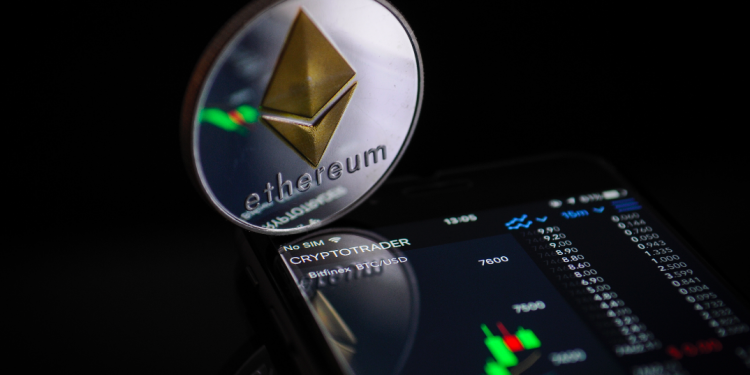The cryptocurrency industry has been going through its best year yet. Bitcoin is now trading above $48,000 (+Kshs 5.2 million), with many other cryptos also posting new highs. The crypto that has stood out is Ethereum, the second-largest in the market. It recently set a new record price at $1,746 (Ksh 101,448). However, with the rise has come one major challenge – transaction fees have shot through the roof. It now costs an average of over Ksh 2,000 to make an Ethereum transaction. In some cases, it has shot up to over Ksh 100,000.
Ethereum, Is It Even Worth the Trouble Anymore?
For a long time, Bitcoin has dominated the cryptocurrency landscape, and it still does. However, in recent years, investors have looked at alternative coins (known as altcoins) more as they seek bigger gains. Ethereum has been the prime alternative. It now trades at $1,534 (Ksh 168,203), having gained 64% in just the past month. Its market capitalization now stands at Ksh 19 trillion. This makes it the 54th most valuable asset in the world, bigger than McDonald’s, Sony Corporation and Total.
However, with the rise in price has come to an unfortunate consequence – an implosion of gas fees. These are the fees you pay for your transaction to go through on the Ethereum network. It’s kind of like Mpesa transactions fees, but in this case, the fee goes to the miners.
As per Bit Info Charts, the average Ethereum transaction now costs you $19.38 (Ksh 2,125). This has come down slightly from just a few days ago when it was above Ksh 2,700. Unlike other systems, e.g. Mpesa, the fee doesn’t depend on the amount you transact. This means that you would have to pay over two thousand shillings in fees even if you were sending two hundred shillings.
Ksh 541,000 Fee for One Transaction
While Ksh 2,000 is the average gas fee on most platforms, it still varies, with some charging a ridiculous fee that’s making many rethink their stand on cryptocurrencies. One user posted on Twitter the highest fee ever seen for a crypto transaction recently. The user was trading on Rarible, a platform for trading digital collectables, such as gaming items. He was charged a shocking $4,941 ($541,780) for the transaction.
Many have voiced their frustration at the fees which they believe are the current biggest barrier to entry. For years, crypto users have branded it as a way to decentralize finance and avail it to all, especially the poor and marginalized. However, such high fees make Ethereum even more expensive than most banks.
Bobby Ong, the COO of crypto price portal CoinGecko, captured it best, stating:
“Hate to say this but the current high gas costs on Ethereum has made it no longer welcoming to beginners or small account holders. It is now no longer economically feasible for small transactions to take place on Ethereum leaving only whales to make on-chain transactions.”
The Impact of DeFi
The leading cause of the high fees is decentralized finance, otherwise known as DeFi. This is a sector in crypto that deals with non-centralized platforms. It relies on blockchain technology which allows users to transact directly without a trusted central authority. However, DeFi goes a step further, allowing for sophisticated use cases such as interest earning, prediction markets, lending and borrowing and more.
DeFi exploded last year, leading 2020 to be labeled “the year of DeFi.” On January 1 last year, only Ksh 75 billion was locked in DeFi platforms. This has skyrocketed and it currently stands at Ksh 3.5 trillion. Some of the leading DeFi platforms include Maker, Aave, Compound, Uniswap and Curve Finance.
DeFi has been one of the key reasons behind the very high Ethereum fees. In the past 30 days, three of the five platforms that have received the most Ethereum gas fees are DeFi projects. Uniswap is first with over Ksh 30 billion worth of fees. 1inch exchange at Ksh 597 million and Sushiswap at Ksh 361 million are third and fourth respectively.
This is unlikely to change in the coming months. DeFi will continue to grow this year, with analysts predicting it will exceed Ksh 50 trillion by the end of the year. However, many DeFi projects are exploring other blockchains including Polkadot, Cardano and Stellar. Some like Compound are also developing their own blockchains. If successful, such migrations will bring down Ethereum gas fees to less than Ksh 200 which has been the average for several years.
ALSO READ; Bitcoin Tops $44,000 As Tesla Reveals $1.5 billion Holdings




